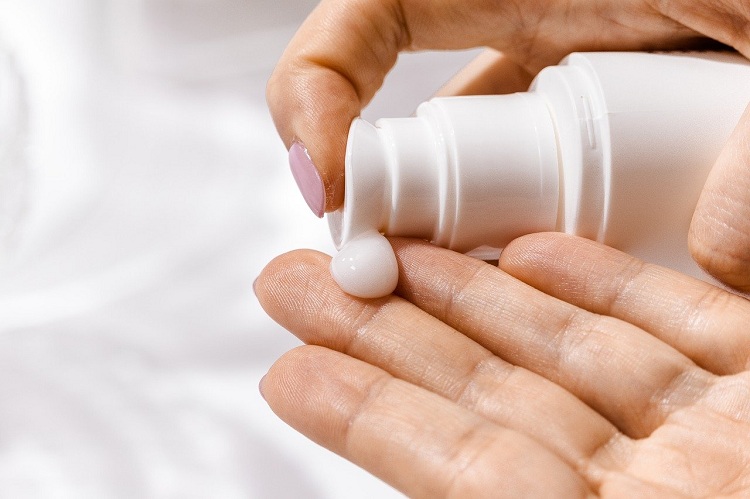
Source: Unsplash.com
If you’ve ever felt that your skin became dry in the winter, you already know the damage that the cold weather can do. No one wants to battle the elements outside, only to discover they’ve got to battle dry, rough, itchy, damaged skin once they make it inside. It’s easier than you think to protect yourself from the cold weather effects, however – and we’re going to show you how. Read on to discover our top tips for protecting your skin this winter, from choosing the right products you use and clothes you wear to making simple skin-health-boosting changes to your diet.
Signs That You Have Dry Skin
Before we delve into our guide for how to protect your skin during cold weather, it’s important to understand the signs of dry skin to look out for. Here are a few symptoms that may indicate the cold weather has given you dry skin:
- Flaking, scaley areas of skin
- Sore, red patches of skin
- Raw, irritated skin
- Cracking or itchy skin

Source: Pixabay.com
Ten Ways You Can Protect Your Skin During The Cold Weather Months
There are plenty of ways you can avoid drying out your skin in the cold weather and protect your skin from damage. We’ve got a selection of top tips to help you on the road to winter skin protection below.
- Be careful what you wear. You may think that choosing the perfect winter outfit is as simple as wrapping up as warm as possible before heading out into the cold weather – but that’s not true. During cold weather spells, your skin can be easily dried out and irritated as it is, so you want to avoid causing further irritation. The best clothes to choose are those made of breathable cotton, whilst you should avoid synthetic fabrics at all costs.
- Choose gentle, moisturizing skincare products. Whether you are cleaning dry skin or trying to avoid it drying out in the first place, choosing the right products is imperative. A few top pieces of advice we can offer include:
- Try Natural Remedies Such As Coconut, Jojoba, or Olive Oil. Adding these oils to your skincare regime can help soothe and moisturize the skin during the cold weather months.
- Wash With pH-Balanced Cleansers. These will help to prevent you from skin drying out as they allow your skin’s natural oils to stay in place, whilst other products may strip them away.
- Don’t Forget The Sunscreen. You may think this sounds silly during the winter months, but actually, you need it more than ever. Sunscreen protects against UV, and you’ll be less aware of how much exposure you are getting during the winter.
3. Turn down the temperature of your shower. Oh, how tempting it is to turn the dial to hot and steam up the bathroom with the hottest shower you can cope stepping into when the weather outside is bitter. This is far from being a good idea, however. Hot water may feel good, but it can strip away the moisture in your skin. Instead, we recommend you have a warm – not hot – shower, and wash yourself with a moisturizing, hydrating body wash.
4. Exfoliate less. Whilst this is an important part of your skincare regime, you need to proceed with caution during the winter, as the cold weather takes hold.
- Exfoliating is important because it helps to remove dead skin cells – but you need to ensure you limit this activity during the cold weather spells.
- Exfoliating doesn’t just strip away dead skin; it can remove those all-important skin oils and leave your skin dry.
- You should exfoliate no more than once a week.
5. Moisturize more. Adding moisture back into your skin should be an important part of the steps you take to protect your skin during the winter.
- You should moisturize every day, multiple times a day, to really reap the benefits.
- Use a moisturizer every time you use a cleanser.
- Always moisturize your hands every time you wash them.
- Moisturize your skin after every bath or shower.
5. Turn the thermostat down. Just as we like to turn the temperature up in the shower, it can be easy to want to turn the central heating up too. You do need to stay warm indoors, but equally, you don’t need it turned up to max. Central heating can cause dry air, and dry air can lead to dry skin. If you do need to turn the heating on, consider using a humidifier to counteract the dry air and help protect your skin.
6. Take supplements. As the winter months set in, and the weather takes a turn for the colder temperatures, you’ll see less of the sun. Most of us don’t get enough of the vitamins we need from our diet alone, so we recommend you take a daily supplement whether you opt for spray, dropper, or tablet form.
7. Protect your face. Whilst you cover your body with clothing, your hair with a hat, and your hands with gloves, your face is often exposed to the elements, and it is important to protect it. Apply sunscreen every time you leave the house and take care to regularly moisturize your face, paying particular attention to the areas around your eyes.
8. Don’t forget to take off wet clothing. This includes gloves and socks too! Sitting in wet clothes can irritate your skin, so if you can it is best to change out of them as soon as possible. This will help you to protect your skin and prevent damage such as itching, cracking, or sores developing on your skin.
9. Protect your skin at bedtime. Your skin has time to heal, and absorb treatments overnight while you sleep, so it’s the perfect time to give it a helping hand to protect it against the cold weather. Apply an emollient to your hands and feet to moisturize and nourish your skin. Just don’t forget to wrap them or you’ll end up with product all over your bedsheets.

Source: Unsplash.com
Top Tips For Food And Diet Adjustments To Make As Part Of Your Winter Skincare
Protecting your skin on the outside is only half the story. Did you know the food you include in your diet can help to protect and nourish your skin too? Read on for our top tips for changing up your diet, including which foods to include in your winter diet to aid help to protect your skin from becoming dry in the cold weather.
- Nuts: Keep your skin looking its best with all the essential minerals and vitamins found in a variety of nuts. Our top nut choices you should look out for this winter are:
- Almonds – These contain fatty acids, protein, fiber, and vitamin E, a vitamin well known to help with dry skin.
- Brazil nuts (and macadamia nuts too!) – These contain selenium which protects against dry skin and signs of aging.
- Pine Nuts – These are a great source of so many nutrients including omega-6 fatty acids, vitamins K and E, and minerals like manganese, potassium, and more.
- Walnuts – These contain vitamin B and omega-3 fatty acids, as well as offering anti-inflammatory properties.
2. Leafy Greens: There are an array of leafy green vegetables available, and they are full of vitamin E. Introduce leafy greens to your winter table with healthy winter spinach and pine nut salad, or a bowl of roasted root veggies with kale.
3. Pulses: Pulses such as chickpeas, lentils, and more are protein-rich. Healthy skin needs amino acids from protein, so pulses are a must-have addition to your diet. Blend up a warming lentil and cauliflower winter soup, or make a delicious, chickpea, coconut, cashew curry to bring these pulses – plus other great skin-boosting foods from this list – to life in your diet.
3. Coconut: We’ve already told you that coconut oil is great for cleaning dry skin when used externally, but did you know coconut is great for eating too? Skincare nutrients such as vitamins C and B1, and minerals like manganese, iron, and more can be found in coconuts and coconuts can be used in so many recipes from sweet potato and coconut soup to spiced coconut bread and butter pudding.
4. Oily fish: Whip up tasty winter warmer using sardines, mackerel or salmon and you’re onto a winner as they are full of those all-important omega-3 fatty acids. A salmon ratatouille or a steamed mackerel soup are great winter recipe choices.
5. Water: It is important to ensure you are drinking plenty during the winter months. You may not feel as thirsty, but your skin still needs to stay hydrated. We recommend you aim for 3 liters of water a day. If you’re struggling to drink enough, why not switch it up a bit. You could try adding fresh fruits like strawberries and lemons to your glass of water or alternatively drink a warm herbal tea to boost your water intake.

Source: Unsplash.com
Just like that, you’ve got all the tools you need to be able to take the best care of your skin this winter. As we head into the cold, windy weather, you no longer have to worry about dealing with dry, damaged skin thanks to this simple yet comprehensive guide to protecting your skin during cold weather.